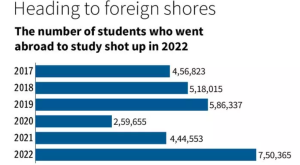Fields of Study
These scholarships often cover a wide range of fields. Some scholarships might have specific preferences, while others are more general.
- Erasmus Mundus: Covers a broad range of disciplines, including social sciences, humanities, sciences, and engineering.
- DAAD: Primarily focused on German universities and often provides funding for diverse fields of study, including engineering, humanities, and social sciences.
Application Procedures
Applying for these prestigious European Master’s scholarships requires careful planning and a strategic approach. This section provides a comprehensive guide to navigate the application process, ensuring you’re well-prepared and understand the specific requirements for each scholarship. Knowing the application procedures will increase your chances of success.Applying for scholarships often involves a series of steps, from initial research to submitting supporting documents.
This detailed breakdown will help you understand each step, making the process less daunting.
Step-by-Step Application Guide
Understanding the steps involved in the application process is crucial. This guide will walk you through each step, ensuring a smooth and efficient application experience.
- Thorough Research: Carefully review the specific requirements, eligibility criteria, and deadlines for each scholarship. Different scholarships have unique application procedures, so understanding these nuances is essential.
- Preparation of Documents: Compile all necessary documents, including transcripts, letters of recommendation, and a personal statement. Ensure these documents are error-free and properly formatted to avoid delays or rejections.
- Online Application Submission: Each scholarship will have its own online application portal. Familiarize yourself with the portal’s interface and carefully enter all requested information.
- Supporting Document Submission: Submit all required supporting documents as Artikeld by the scholarship provider. Verify the file types and sizes to ensure successful uploads.
- Monitoring Application Status: Keep track of the application status through the online portal. Regularly check for updates and promptly address any issues that arise.
Navigating Application Portals
Different scholarship programs utilize various online portals for applications. This section Artikels general navigation tips for these portals.
- Read Instructions Carefully: Each portal will have specific instructions. Pay close attention to these instructions to avoid errors. Following instructions ensures your application meets the standards.
- Understand the Application Form: The application form will have sections for personal information, academic details, and supporting documents. Understanding the structure of the form is key to accurate and efficient input.
- Verify Information Accuracy: Double-check all entered information for accuracy. Inaccurate data can lead to rejection, so meticulous review is crucial.
- Seek Help if Needed: If you encounter any problems navigating the portal, consult the scholarship provider’s FAQs or contact support. Addressing issues promptly can prevent delays.
Required Documents
The required documents vary depending on the scholarship. This table summarizes common requirements.
| Document Type | Description |
|---|---|
| Academic Transcripts | Official transcripts showing academic performance. |
| Letters of Recommendation | Letters from professors or mentors assessing your qualifications. |
| Personal Statement | A detailed statement outlining your goals, experiences, and aspirations. |
| CV/Resume | A comprehensive summary of your education, skills, and experience. |
| Proof of Language Proficiency | If required, evidence of English or other language proficiency (e.g., TOEFL, IELTS scores). |
Resources for Applicants
Numerous resources can assist applicants in navigating the scholarship application process.



